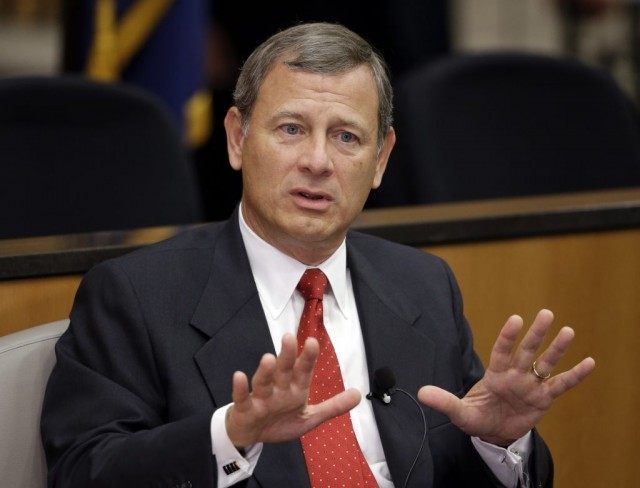WASHINGTON, DC – Chief Justice John Roberts blocked a contempt citation imposed by a D.C. federal court in a secret case supposedly involving special counsel Robert Mueller, an extraordinary action that could lead to the first secret Supreme Court hearing in American history.
Mueller’s probe – which began as investigating President Donald Trump’s election but has mushroomed into a wide-ranging inquiry involving unrelated issues such as decades-old business dealings of campaign aides and illegal activities of his disgraced former personal lawyer – apparently also includes a subpoena issued to a foreign corporation owned by some unknown foreign state to testify before a federal grand jury.
The corporation objected to that subpoena, claiming it is immune from compulsory process under the Foreign Sovereign Immunities Act (FSIA). That statute is the sole basis for U.S. courts’ claiming jurisdiction over a foreign government, including in this case a corporation owned by a foreign government.
Chief Judge Beryl Howell disagreed with the corporation’s arguments, holding that the foreign corporation falls within an exception to the FSIA, and rejecting the corporation’s other objections to being compelled to appear before the grand jury. The Obama-appointed judge held the foreign corporation in contempt of court for not obeying the subpoena.
On appeal, the U.S. Court of Appeals for the District of Columbia Circuit implemented special measures to keep these proceedings secret, including clearing an entire fifth floor of the federal courthouse in Washington on December 14 during oral arguments. On December 18, a three-judge panel of the appellate court affirmed Howell’s decision.
Lawyers for the unknown foreign corporation applied for an emergency stay at the Supreme Court, directed to Roberts who has jurisdiction as circuit justice over the D.C. Circuit.
On December 23, Roberts unilaterally issued a temporary stay of the trial court’s contempt ruling. He ordered prosecutors to file a response with him opposing a stay by noon on December 31 and added that the current stay would remain in effect until further word from him or the entire Court.
Regardless of whether the stay is kept or lifted once prosecutors present their arguments in a legal brief, it is possible that the Supreme Court could grant review of this unusual case, aspects of which seem more like the plot line of a Jack Ryan movie or an episode of Showtime’s Homeland.
If so, experts are already speculating how the Supreme Court would go about hearing the case. Quick research reveals no instance where the Court has heard arguments in a case where media reporters and the public were barred from the proceedings.
It is, thus, unclear whether the oral arguments would be public with certain sensitive matters explained in sealed filings to the court or if the justices would hear their first-ever secret arguments. If the Court opts for the latter approach, it is currently unclear whether the courtroom would be sealed during arguments or the hearing would be held in some other room in the Supreme Court building.
All this dramatic speculation may turn out to be completely unfounded, and this case may be no big deal. But as of Christmas Eve, curiosity is growing to understand what is going on in this case that has now attracted the attention of the chief justice of the United States. A second ruling on the application for a stay is likely in the first days of January.
The application for a stay in In re Grand Jury Subpoena is No. 18A699 in the Supreme Court of the United States, and the case is No. 18-3071 in the U.S. Court of Appeals for the District of Columbia Circuit.
Ken Klukowski is senior legal editor for Breitbart News. Follow him on Twitter @kenklukowski.

COMMENTS
Please let us know if you're having issues with commenting.